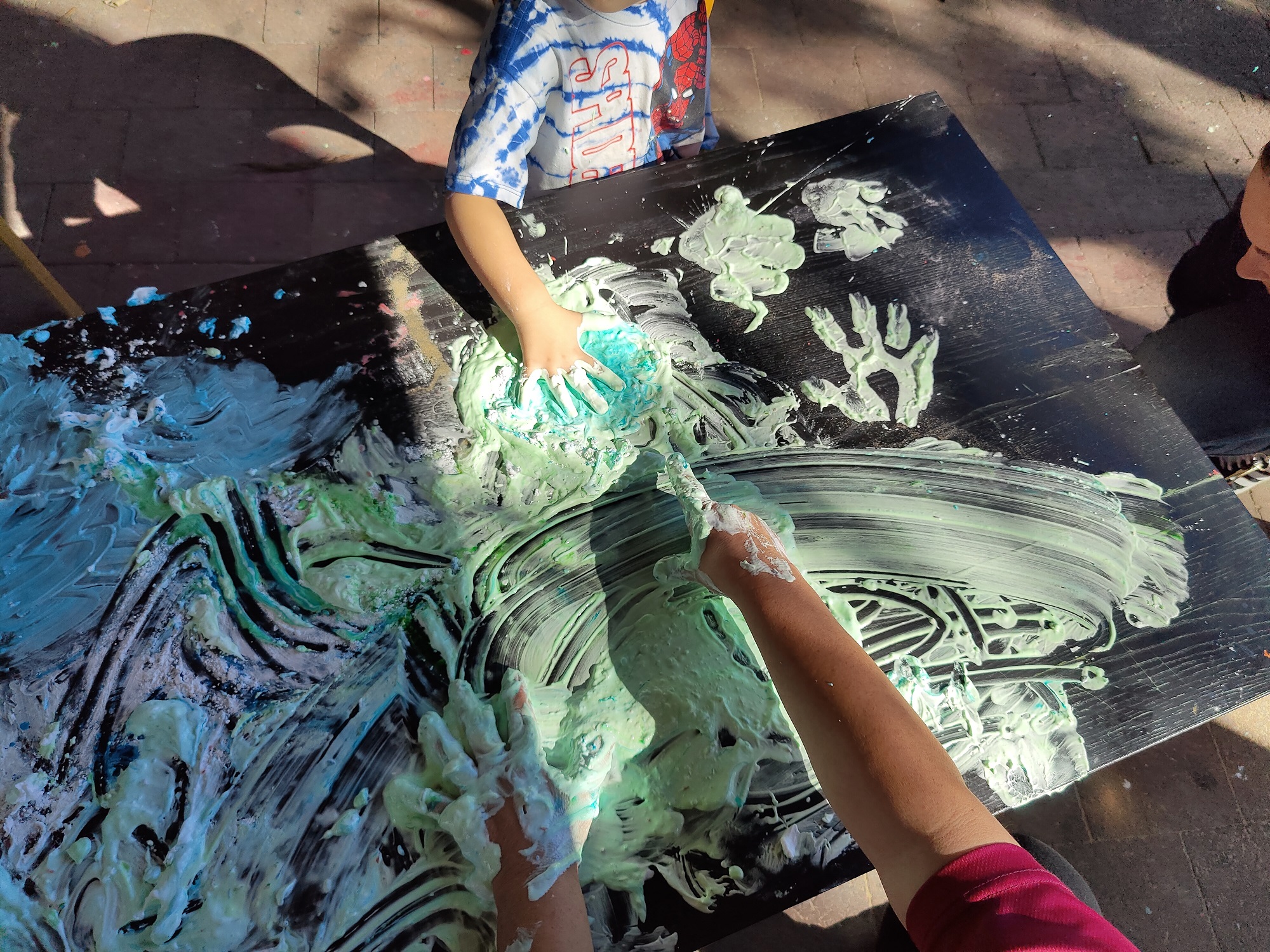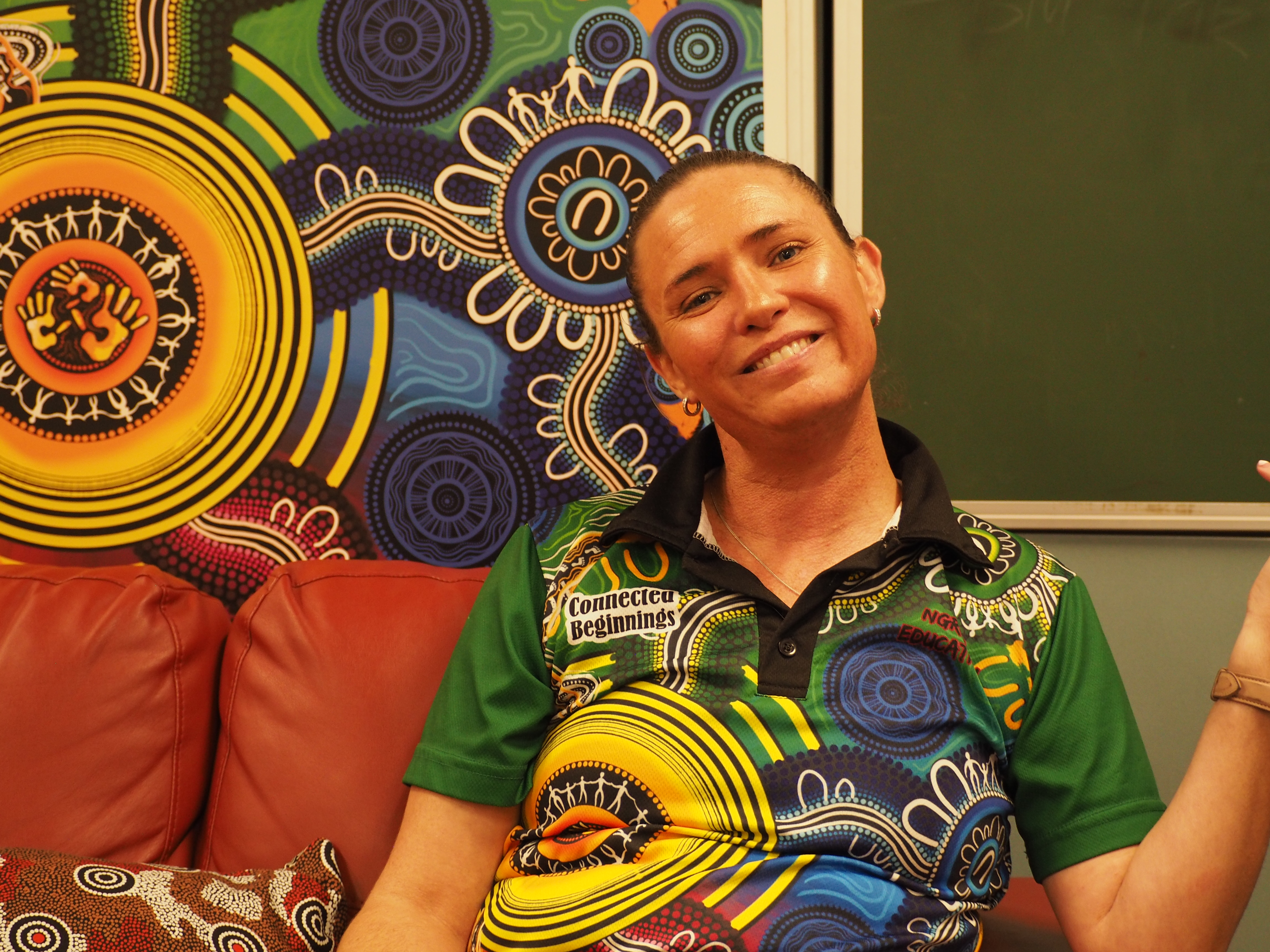On a sunny afternoon on Dharug country in western Sydney, tiny figures follow Joanne Horton. A proud Yuwaalaraay woman, Joanne heads to a table in the yard at the Murray-Toola Damana preschool. Anticipation rises as she lays out her kit — bags of corn flour, multi-coloured rice sprinkles, containers of water. This activity is not just about keeping young children occupied for an afternoon — it is a path for building networks of support for the community.
The playgroup at Murray-Toola Damana (Dharug for ‘many hands’) is a Connected Beginnings site in western Sydney managed by the Ngroo Education Aboriginal Corporation. The area covered by Ngroo has a large First Nations population of more than 23,000 people, with more than 50% under the age of 24. Many have cultural ties originating elsewhere in the state or country as the result of past resettlement practices.
Connected Beginnings is a national Closing the Gap measure that brings together First Nations community members and organisations to find local solutions collectively. It draws upon the strength and knowledge of Aboriginal and Torres Strait Islander communities to help ensure children are safe, healthy, and ready to thrive at school by the age of 5.

Messy play at Murray-Toola Damana preschool on Dharug Country, western Sydney.
Jointly funded by the Department of Education and the Department of Health and Aged Care, the Connected Beginnings program supports families to access local early childhood education and health and care services.
Krystle Daley, a proud Wiradjuri woman, is the executive director of Ngroo, based in Tregear. She coordinates the Connected Beginnings partnerships across the suburbs of Doonside and Mt Druitt.
Krystle joined Ngroo in 2020 after a career in child protection and early intervention. At that time, the Connected Beginnings program in Mt Druitt had only one worker. Krystle’s immediate priority was to add staff and to meet the local community, including elders.

Krystle Daley, executive director of Ngroo
“We went out to listen to our mob and get feedback where gaps are, and how we can deliver a service for our people. From building local relationships we started consultations with other services. From our first meeting with 10 services, we ended up with 25. We're all holding ourselves accountable,” Krystle said.
“We have had massive success stories. We have prevented kids from being removed purely because the families wouldn't engage with a service, purely because those had no Aboriginal staff. And now others, like DCJ [NSW Department of Community and Justice], come to us asking for support.”
Krystle says the next step is to establish an early childhood education and care service with a First Nations focus — one that the local community recognises as culturally safe and supportive.
“We saw that there were no Aboriginal playgroups at all in Mt Druitt. So, we now run pop-up playgroups in partnership with [the nearby Aboriginal preschool] Murray-Toola Damana. Families come along to the playgroup, and they get a preview of what preschool is like. They feel comfortable and they feel welcome. Last year, we went in one month from 4 families to 15 after the word got out. Now we have 20 families that come along.”
With this outreach, Ngroo is collating a lot of information. To manage the data in line with community expectations, Krystle’s Connected Beginnings team has partnered with Just Reinvest — a coalition of more than 20 organisations.
“These stories belong to our people. This information and the stats, and how they feel — this is their journey. We will be forming a governance committee from local Aboriginal community members. Everything that we collect will be owned by the Mt Druitt Aboriginal community. We believe in sovereignty of data, we're 100% behind it,” Krystle said.
Read the full case study and find out more about Connected Beginnings.

